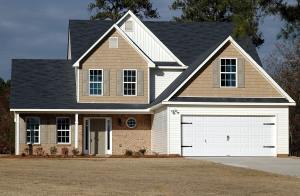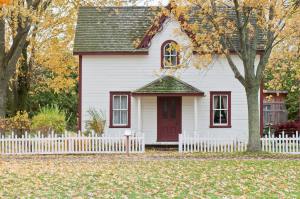How Many Rental Properties to Retire? A Look at the Numbers

Investing in rental property is a great way to make a passive income – and it can also be a great way to finance your retirement. One of the many benefits of this type of retirement income is the fact that your expenses are paid by your tenants, leaving you with a cash flow to help fund your retirement.
With this form of investment, knowledge is key. It’s important that you know how many rental properties you will need in order to retire comfortably. There are also many skills associated with managing rental properties that you may need to acquire – or hire someone that has them.
Read on to learn both the advantages and disadvantages of using rental properties for retirement income, how to decide which rental properties to acquire, and how to estimate the income you will need for retirement.
Advantages of rental properties for retirement income
Many people choose to use rental properties for retirement income, and there are many benefits to doing so. Read on to learn the advantages of using rental properties to fund your retirement.
Rental Properties Provide Cash Flow
Cash flow is a major reason why many people choose to use rental properties to retire. If the tenant is paying their rent, this often covers operating expenses and repairs and allows the remainder of the cash flow to be profit. There are times when the cash flow is negative, such as when the landlord has to make more extensive repairs. To prepare for this, you can set aside some reserve funds to cover additional unexpected expenses.
Home Prices Appreciate in Value
Since the year 2000, home prices have steadily increased in value. This doesn’t occur in a straight line – occasionally, home prices will dip during a recession. However, for a long-term investment, real estate is a solid choice.
Rental Properties Provide Leverage
Real estate investors can have control of the entire rental property for a small down payment. Typically, an investment of just a 25% down payment is used to fund a rental property. For example, if a home costs $100,000, an investor can purchase for just $25,000.
Rental Properties Provide Tax Benefits
The IRS allows rental property owners to record a depreciation expense on their rental property to reduce their taxable net income. This is one of the major tax benefits of owning a rental property. This reduces the overall amount of taxes that a landlord must pay.

Downsides to real estate investing for retirement income
As with any investment, there are some cons when it comes to using real estate investments for your retirement income. Here are just some of the downsides of this form of investment.
Knowledge and skill required for rental properties
One issue with real estate investing is the amount of knowledge and skill required in order to be successful. Investing in traditional investments, such as the stock market, require relatively little skill. In order to succeed at managing rental properties, you need to know how to calculate rental cash flow, how to finance properties, how to screen rental applications, how to manage tenants, how to file for eviction, and so much more. If you are interested in this form of investing, be sure to build the skills that are required in order to do well.
Labor is required to manage rental properties
Finding and managing your rental properties is a labor-intensive process. It requires more work than the average passive investment. You can consider outsourcing some of the tasks, but that will take away some of your potential retirement income.
Rental properties require a high minimum cash investment
Even if you finance your properties, you will need to put down some serious cash in order to get into the rental income game. The amount of cash required prevents many people from making this type of investment.
Rental properties lack liquidity
Real estate isn’t a very liquid investment. It takes a lot of time to buy and sell property, which means that the cash you invest will be tied up in your investment. Once purchased, your rental properties are not easy to sell quickly, and they will become a long-term investment for your retirement.

The Rental Income Retirement Strategy
If you’ve decided to rely fully or partially on rental income for your retirement, you’ll want to plan ahead as much as possible. It’s important to develop your strategy so that you are aware of what your expenses are and how much rental income you will need in order to retire. Read on for tips on how to develop this strategy for your potential rental properties.
How Long Will It Take Me to Retire?
When making plans for your future retirement, there are a lot of unknown factors. This question is very difficult, if not impossible to answer. But there are some factors that can help you determine whether you can retire sooner or later.
For example, if you are planning on staying at your job for a while and using your passive income from rentals as an additional source of revenue, you may find that you arrive at retirement faster than if you quit your job and focus solely on rental income. It also depends greatly on how much of your current income you are putting aside for future savings.
Estimating Your Annual Expenses after Retirement
When trying to determine when you can retire, it’s important to know how much money you will require in order to support your lifestyle. You’ll need to calculate your living expenses and determine how much money you’ll need to cover these expenses plus savings. You should account for expenses related to work, vacations, medical bills, food, insurance, vehicles, and hobbies.
There are some factors affecting your future that are out of your control, such as inflation and rising interest rates. You can’t completely predict these factors, but you should still attempt to create an estimate.
Once you have the total of your expenses, you can estimate the number of rental properties you will need in order to cover those expenses.
Rental property retirement formula
There are retirement calculators available to help estimate how much money you need for your retirement when relying on traditional investments. For investment properties, there is a simple formula you can follow to help you determine what you need.
- I = M x C
- Income = Money Invested in Rental Property x Cash-on-Cash Return
Income is the income that you will require in retirement to pay for your living expenses. To use this formula, you would need to know what income level you require and the average cash-on-cash return from a rental property.
Let’s say your income requirement is $70,000 and the average cash on cash return is 5%.
- I = M x C
- M = I / C
- $70,000 Income / 5% Cash-on-cash return = $1,400,000 Money invested in rental property
You would need to invest about $1,400,000 into rental properties. The number of properties you would invest in depends on the individual prices of the properties.

How to Decide Which Rental Properties To Acquire
When considering which rental property to invest in, you’ll need to consider several factors. Is the property residential or commercial? Where is it located? How much does the property cost? How much rental income can I make from the property?
You want to invest in the property with the highest return on investment. Look at the costs and rental rates of properties all over and determine the best area to invest in. You’ll also want to consider how involved you want to be in managing the property. If you want to be heavily involved, you’ll need to live nearby. If you are farther away from your rental property, you may need to hire help to manage the property.
Protecting Your Investment
Once you’ve put so much money and work into your rental property, you’ll want to protect your investment. Landlord insurance will help protect you from unforeseen incidents, such as the property burning down or a tenant getting injured on the property and suing you.

FAQs
How many rental properties will it take to make $100,000 a year?
The number of properties you will need in order to make this level of income depends on the cost of the properties in the area you’ve chosen, as well as the average cash flow generated by rental property in that area. You can use the retirement formula (Income = Money Invested in Rental Property x Cash-on-Cash Return) to help you calculate this number.
How much passive income do you need to retire?
The answer to this question depends on your expenses and how much you want to put into savings. You should account for expenses related to work, vacations, medical bills, food, insurance, vehicles, and hobbies. Increases in tax rates and inflation are other factors to consider when making this calculation.
Are rentals good retirement income?
Rental property can provide you with good retirement income, but you’ll need to do your homework. Be sure to calculate which areas of the US and which properties will provide you with the best cash flow to fund your retirement.
You’ll also want to learn all of the skills associated with managing a rental property – or calculate how much it will cost to outsource these tasks.
Can you collect rental income and Social Security?
Social security only counts your income from employment when determining how much you will receive. Income from other sources, including rental property, will not affect your social security payout.
Sources
https://www.steadily.com/blog/how-many-rental-properties-do-you-need-to-be-able-to-retire
https://learn.roofstock.com/blog/how-many-rental-properties-to-retire
https://www.kiavi.com/blog/pro-cons-rei-retirement-income
https://thehub.santanderbank.com/7-ways-rental-properties-can-help-you-retire-early/
